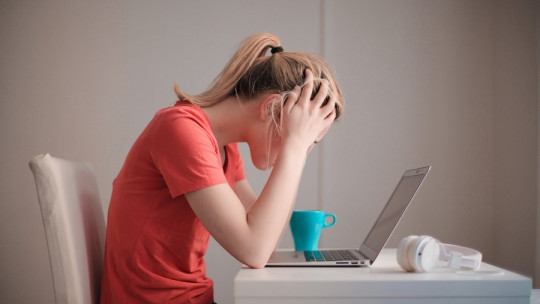Experiencing occasional anxiety is not necessarily a bad thing. It tells us that we give value to what gives us that sensation, it prepares us to act and allows us to explore different options to solve what we are immersed in.
However, when these sensations occur continuously, for no apparent reason, and begin to significantly interfere with daily functioning, that is when we must begin to analyze what is happening.
How do anxiety problems affect us?
In general, with anxiety disorders we can notice difficulties on a personal, work, family and/or social level. 7.6% of people in Spain report chronic anxiety. Within the age groups, 8.75% correspond to people between 45 and 54 years old and 10.51% correspond to individuals between 55 and 64 years old.
These feelings are disproportionate to the real danger and, far from helping us react, they generally paralyze and make execution difficult.
It is possible that, to avoid this unpleasant and uncontrollable feeling, the person begins to avoid situations, encounters or isolate themselves in a certain way. At the same time, Perfectionism and unrealistic demands contribute to the appearance and maintenance of anxiety. Furthermore, the spectrum of what we generally call anxiety is very broad.
What forms do anxiety problems take?
Anxiety can be generalized (without apparent stimulus or cause), to social situations, to separation, or take the form of specific phobias and agoraphobia, or through panic disorder, or due to a substance or illness, etc.
Likewise, anxiety It can begin as a result or consequence of another disease or occur together with other pathologies. , like depression, for example. People who have an organic disease (recognized or not) may also be experiencing anxiety due to the interference it produces or as a symptom of the disease; as occurs, for example, in oncological processes.
What can be done?
Finding out what issues may be causing this response will help us focus on the most appropriate treatment.
Although sometimes anxiety is overwhelming and requires complementary pharmacological treatments, it is not advisable to take medication without acting on the root of the problem, as we run the risk of creating dependence on mediation without creating our own strategies that can help combat it. Besides, Psychological therapy helps us prepare for anxiety-inducing situations so that it helps us consolidate strategies and tools that help us reduce or eliminate it.
@professional(2062035, “Are you interested in psychotherapeutic help?”)
How to recognize the existence of an anxiety problem?
As we have already mentioned, there are several subtypes within anxiety, although some symptomatological manifestations may be common. So, The main characteristics that can help us recognize it are the following :
The current health situation has considerably raised anxiety levels in the population. Recent studies indicate that one in five (19.6%) people residing in the Spanish State presents clinically significant symptoms of anxiety, with the symptoms being more prevalent in women (26.8%). Surprisingly, the age groups with the highest levels of anxiety correspond to the young population between 18 and 24 years old. In turn, researchers have concluded that those people with psychological problems double the probability of experiencing anxiety.
Therefore, if you observe any of these symptoms, whether caused by the pandemic or other factors, it is important that we can count on professional help.









